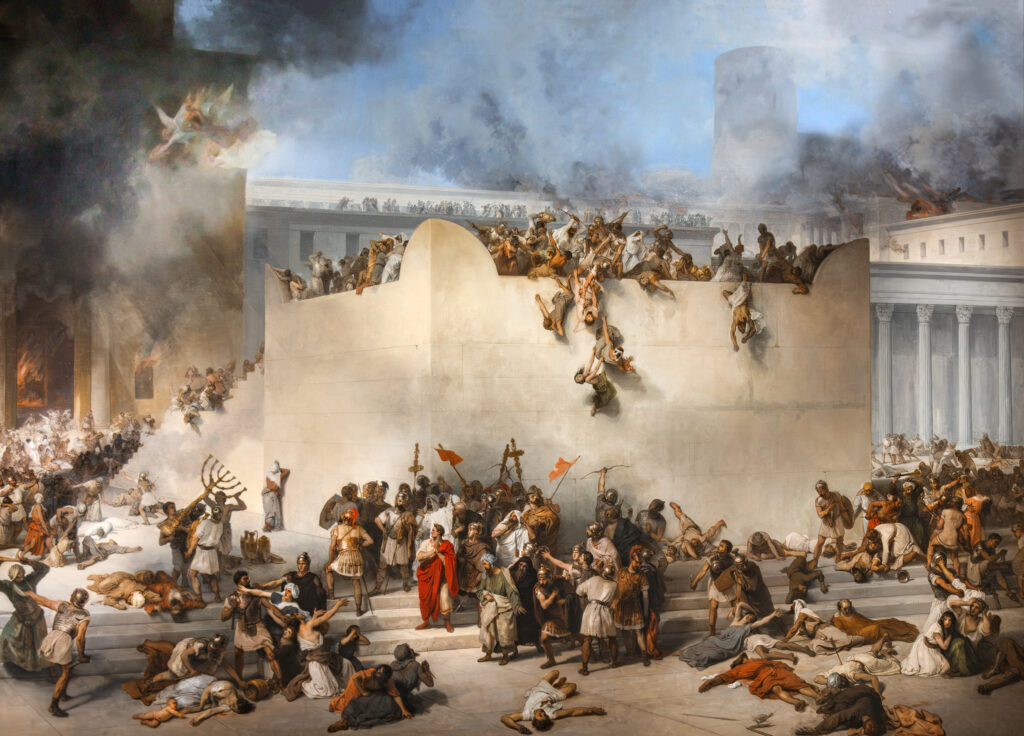Georg Philipp Telemann (1681 – 1767) had a connection with the city of Leipzig which began in 1701, when he enrolled at the university to study law. Though music was not his intended course of study, his talents quickly drew him into the city’s cultural life. He founded and directed a student Collegium Musicum, composed works for the city’s main churches, and gained valuable experience in organizing and leading ensembles. These early years in Leipzig not only gave Telemann practical training but also established his reputation as a rising figure in German musical circles.
When Johann Kuhnau, the long-serving Thomaskantor, died in June 1722, the Leipzig town council was faced with the task of filling one of the most prestigious church music posts in Germany. Telemann, by then Kapellmeister in Hamburg and already one of the most famous composers in Europe, was invited to apply. The council valued both his prior ties to the city and his stature as a composer. He formally submitted himself as a candidate and, thanks to his reputation and experience, quickly emerged as the preferred choice of the Leipzig authorities.
Yet despite being offered the position, Telemann ultimately declined. The Hamburg city council, eager to retain him, responded to Leipzig’s offer by granting him a significant salary increase and improved conditions. His withdrawal from consideration in early 1723 left the Leipzig council to look elsewhere, a process that eventually culminated in the appointment of Johann Sebastian Bach who accepted the position later that year.
Telemann’s application included presenting two cantatas for Thomaskirche on August 9, 1722, the 10th Sunday after Trinity. The surviving reports from the period don’t specify the pieces, but scholars believe that one of them could have been “Ich muß auf den Bergen weinen und heulen”, catalogued as TWV 1:851, which fortunately survives both in text and music. The cantata is modestly scored for traverse flute, strings and continuo, with four solo voices labeled Canto, Alto, Tenor and Bass. The soloists can come together to sing the closing chorale, which is the only choral movement in the work.
This Sunday’s Gospel (Luke 19: 41-48) deals with Jesus’ prophecy of the destruction of Jerusalem. The libretto, by an unknown poet, fuses Jesus’ prophecy, the actual historical catastrophe of Jerusalem’s destruction in 70 AD, and Lutheran exhortation, into a single warning: God’s patience is real, but judgment on unrepentant sinners is certain.
In the opening aria, the text paraphrases Jesus’ lament on the Mount of Olives, weeping for the sins of the people of Jerusalem. The aria is set for alto, accompanied by the solo flute, strings and continuo. It’s set in a gently flowing triple meter, with the flute moving in jumpy triplets, perhaps illustrating uneasiness or emotional conflict. Interestingly, after the opening ritornello the meter changes to “C” (4/4) for the delivery of the initial statement, switching back to 3/4 for the rest of the commentary and reflection. The Da Capo structure requires looping back to the point of the return to 3/4, so the initial statement and its associated C meter aren’t presented again. Some striking musical illustrations include the chromatic ascend for “weinen” (weep) which changes to wider intervals for “heulen” (wail), as well as the chromatic descent in long notes on “Todten-Baar” (“bier of the dead”).
The second movement, a recitative for the tenor accompanied by strings, continues to elaborate on the fate of Jerusalem. The text includes a reference to Solomon’s majestic throne (1 Kings 10:18–20) to establish contrast between past glory and impending judgement. It closes by paraphrasing Jesus’ words again, about “not recognizing the time of God’s coming to you.”
The bass aria that follows draws heavily from Psalm 7, verses 12-14, incorporating its vivid judicial and martial images as warnings for lack of repentance. It’s rather short, with no text repetitions except for the last line, and set for voice and basso continuo only. The two entrances of the voice imitate the melodic material first presented on the continuo line, which also features energetic octave leaps matching the imagery of violence. A long melisma underscores the word “dräuet” (“warns” or “threatens”).
The next short segment of text, serving as a culmination to the previous movement, is set as another concise aria, this one for soprano (labeled “Canto” in the score). It references Romans 2: 4-5, contrasting God’s long-suffering, or patience, against his wrath and judgement. The strings come back as well as the flute, on a virtuosic line of scales, arpeggios, and surprisingly high notes, which could be thought of as an illustration of the bursting through clouds.
The following extended recitative is truly a biblical collage, with references such as Noah and the Flood from Genesis, Hosea’s use of “Ephraim” as a reference to the people of Israel and his image of drawing them with “cords of love” to repentance, and pointing out God’s reluctance to punish (Ezekiel 33:11), among others. It’s given to the alto, this time as a “secco”, i.e. with contino as the only accompaniment.
Another aria for soprano follows, drawing a parallel with the destruction of Sodom (from Genesis) and referencing the Last Judgement (from Revelation). The flute, again with virtuosic scalic passages, seems to illustrate the image of flames referenced in the text. Via a bridge section of long, ascending notes, the aria closes with an indication to go back to movement 4 in a sort of “Da Capo” loop that skips the intervening recitative.
The closing chorale, set in simple four-part harmony, is taken from Johann Rist’s hymn “O Ewigkeit, du Donnerwort” of 1642, one of the best-known 17th-century Lutheran hymns on death and judgment. The chosen stanza wraps up the cantata on a somber note, by highlighting the torments of hell as a consequence of sin.

